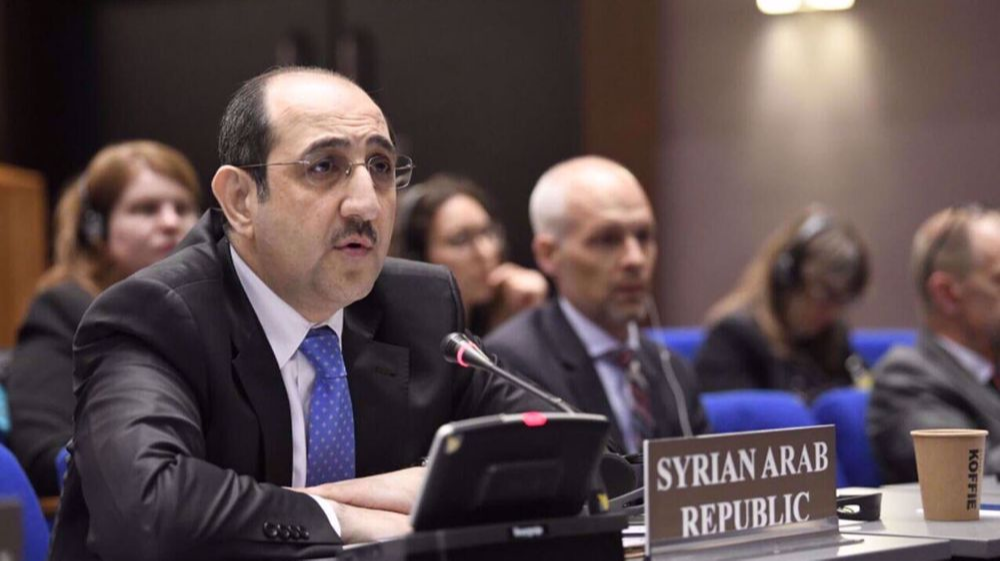
Syria’s Permanent Representative to the United Nations Bassam Sabbagh (file photo)
United Nations, July 15 (RHC)-- Syria has emphasized that Western countries are using illegal cross-border humanitarian operations in the Arab country’s northwestern regions to blackmail Damascus. Russia earlier this week vetoed a West-backed draft resolution at a UN Security Council session that called for an extension of aid deliveries to Syria through Turkey without the consent of Damascus.
Speaking at the session, Bassam Sabbagh, Syria’s permanent representative to the UN, said the resolution did not reflect the Syrian people’s aspirations, arguing that the cross-border mechanism is being used by the West to blackmail and induce political pressure against his country.
“Since the first day of consultations about extension of the resolution on cross-border aid delivers, Syria has welcomed a constructive approach that would meet Syrian people’s needs without any discrimination or politicization, especially in the aftermath of the destructive earthquake [in the northern sector of the country,” Sabbagh said.
He added that Syria has demonstrated great degree of openness and cooperation with friendly countries at the Security Council, and at the same time, it has expressed concerns about the Western-drafted resolution.
The Syrian diplomat also underlined the need for early recovery projects to include progressive and sustainable solutions, particularly after the earthquake. Sabbagh called for mechanisms that would secure the safe return of Syrian refugees and would ensure that Western sanctions wouldn’t affect humanitarian relief activities.
Earlier, Russia’s Ambassador to the UN Vassily Nebenzia signaled that the aid operation would not continue if other countries pressed forward with attempts to extend authorization beyond six months. After casting the veto and before the Council vote on Russia’s proposal, he told the body: “If our draft is not supported, then we can just go ahead and close down the cross-border mechanism.”
The UN Security Council has been extending the Mechanism for Cross-Border Aid Delivery into Syria (CBM) since 2014.
Syrian President Bashar al-Assad’s government has repeatedly denounced the cross-border mechanism as a violation of Syria’s sovereignty and a tool to advance Western agendas in the country. Moscow and Beijing have generally agreed, contending that the UN authorization violates Syria’s sovereignty and the aid to militant-held territories should instead be routed from Damascus.
There have been concerns that the Western powers, under the guise of humanitarian assistance, seek to provide support to Takfiri terrorist groups that have suffered huge losses against Syrian government forces in the past few years.
The Arab country found itself in the grip of foreign-backed militancy and terrorism in 2011. The situation compounded in 2014 when the Takfiri terrorist group Daesh started unleashing a campaign of bloodshed and destruction across the Arab nation. The country initially lost huge swathes of territory to the terrorists. Gradually, however, it began to seize them back with the help of its allies Iran and Russia.
Ever since, the northwestern province of Idlib has turned into a safe haven for the Takfiri terrorists and militants, who would flee the Syrian military and its allies’ operations into the flashpoint province.

